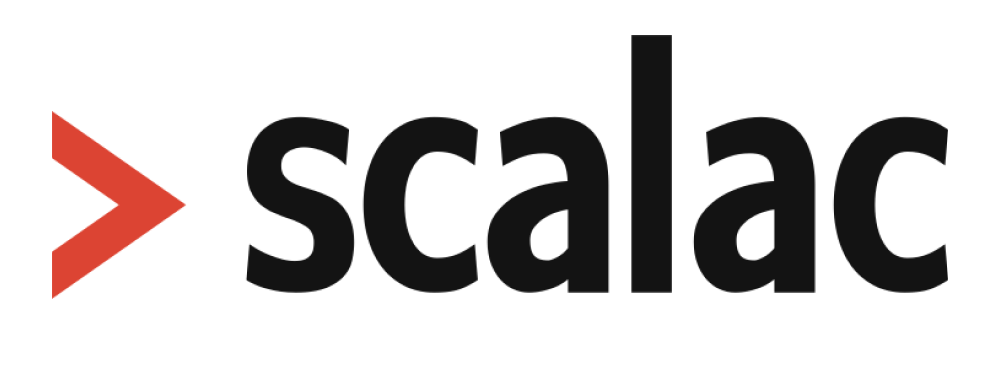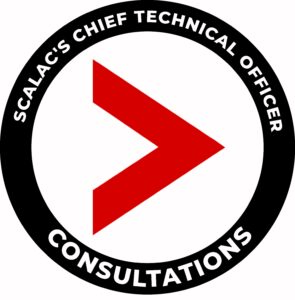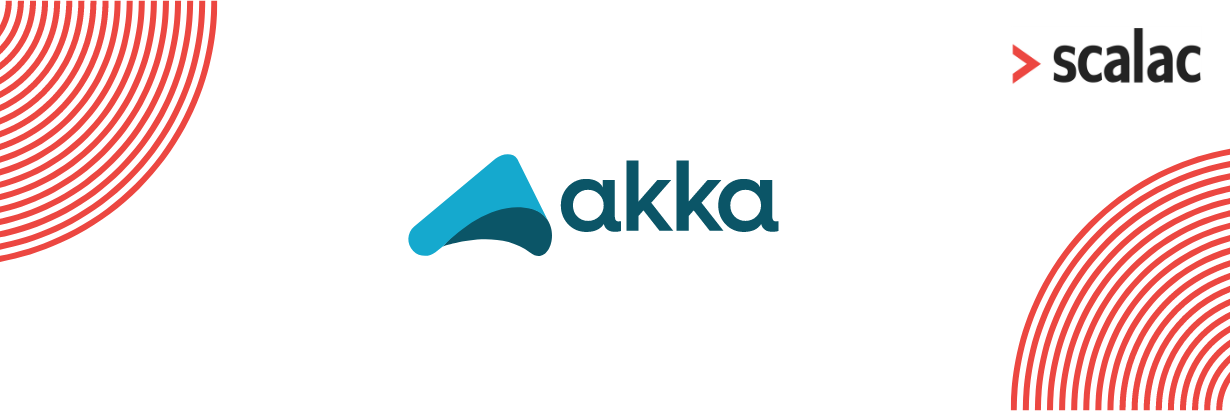
How do we build a PRO tech team?

Start with “why”
We exist to help companies develop amazing IT products.
To develop incredible products that are future-proof, stable, fast, and scalable, companies need great teams to do the job. Finding the right people to develop good software is challenging. Recruit IT professionals. Preferably – the best ones. This is where Scalac comes in, with all our experience in hiring, managing, growing, and keeping the best engineers. We can deliver you, developers, in a Team Extension model, or we can offer you whole teams that will execute and deliver your project for you. You can focus on your requirements, and you can leave us to take care of the performance of the teams.
We have come across all kinds of situations that IT companies have found themselves in when needing developers:
- those that have a constant appetite for hiring more people. In our cases, these are usually banks, and big FinTech companies that value speed, quality, and ease of growth,
- startups that have just got a round of funding and need to scale fast to deliver. They don’t want to waste time doing the hiring themselves. They value speed, quality, the comfort of easily letting people go with no strings attached, no severance pay, etc,
- companies that have recently acquired other companies and need to maintain and grow their product. These value expertise, responsibility, product management competencies, and partnership.
All of these cases have one thing in common – they all need a team that delivers.

The What: Recruit IT Professionals – not as easy as it sounds
We need professionals to design and provide professional processes. To recruit IT professionals, a recruiter has to know the basics of the major technologies we use in the projects, what kind of domains we support, and what the process of software development looks like. In many cases, developers are already earning a lot of money. So what they need from the project are challenges, new technologies, a great and supportive team, great culture, and a lot of opportunities to grow. Only these things can make them feel eager to change the company, it’s not enough to just offer good money. You need great frontman people (a Talent Team), to convince good developers to join your company. You need to be able to tell with the full belief the right story, one that is above all true.
So every recruitment process starts with good preparation. This includes market research, getting to know the basics, the desired background of our candidates. And finally knowing the right questions to ask.
Our message is delivered on different levels, especially while we check out the candidates’ skills (both soft and hard).
- There is an initial discovery talk with a Talent Team member. This will start off the conversation on a general level, checking if the company and the candidate suit each other on a soft level. Sharing information about the business etc. Then we have to check basic technical skills and level of English.
- Next, there is an assessment task – created by us especially for our needs – we do not use any external platforms. We check the tech competencies of the candidates.
- After that there is a technical interview with a Scalac developer. To go deeper and ask additional technical questions, and to talk in greater depth about the assessment task.
- Lastly, there is the final talk – to talk about formalities and to make sure the final feelings of the candidate still match the Scalac vibe. This is where the CTO or CEO will be involved.
After each recruitment process, we share the lessons we have learned at meetings. To polish the process, to make it better and better, to always be ahead of the market.
5 out of 100 – we look for the best
Only 5 out of 100 candidates get hired at Scalac, so our recruitment process has a 5%efficiency. We have a constant stream of candidates in our pipeline, to be ready to start any project as soon as possible when a client needs it.
A high quality recruitment process is crucial to hiring technically qualified people that will fit in with our culture. At Scalac, we say that we are all recruiters, because our statistics show that ~ 33% of our professional senior developers have been engaged in recruitment processes. This is a big investment, since we usually need to pay extra for technical reviews and technical interviews. We also teach our developers how to conduct a technical review by allowing them to “shadow” the interviews, to give experience to developers who are not at a senior level yet. The recruitment process is the moment that we start the adventure of building a professional – but also friendly – relationship with every single person.

The How: We are more than programmers
After the successful recruitment process has finished, we have to make sure the onboarding process goes smoothly, and to ensure there is an individual development path laid out for each person. At Scalac, we believe that technical competence is just as important as “soft skills”. We take care of the technical parts of the recruitment process, and check out the experience of the candidates, but we also value communication and cooperation skills at just the same level of importance.
Scalac Competency Matrix
In order to select the most promising and best qualified talents, we have developed the Scalac Competency Matrix – to make sure that every person within the company has a good understanding of what each position means. We want everything to be as transparent as possible when it comes to competence assessments. So we use the Scalac Competency Matrix for recruitment and development purposes – this helps us to assess the competency level of Scalac engineers, to identify any competency gaps, and to be able to individually work on them. This also differentiates individual seniority levels and supports the development paths for each individual. Working on the model clearly shows that soft skills, e.g. self organization, proactiveness, a teamwork approach, method of communication, play an important role in the work of IT consultants.
We recruit IT professionals for Scalac – not for any specific project. Every time we check out a new recruit, we consider how well they match with the company because this will assure us that the new employee will be proactive, independent, engaged, and will stick with the company for a long time. All of these factors are crucial to creating stable and professional teams for working on our client’s products
It is crucial that we constantly make sure we support our employees’ development, even if they are at a high level of seniority.
What do we actually do and provide?
- Support the drive for the development of Scalac engineers, providing them with a dedicated development budget and some extra free time for activities that further their development.
- Guilds channels (e.g. guild scala, guild front-end)
- Internal brainstorms and workshops (we call these ‘pizza’ days)
- Individual development paths supported by HR
- Opportunities to speak at best industry events
- Opportunities to write meaningful content – blog posts, ebooks etc
The best metric that proves the effectiveness of our approach is that almost 80% of our developers declare that they have developed or super-developed themselves while at Scalac. We really want to have engaged and proactive and personal developing employees – something we also like to check during the recruitment process. Another important characteristic is that we have the drive to make developers as independent as possible. For example, all of our developers have direct contact with the clients’ teams.
Constant checks, and a chance for personal regeneration on internal projects – to avoid burnouts
Some projects are very intensive, demanding, and exhausting. You need to constantly check the mental health of your employees to avoid burnouts, and frustrations. How do we do l that at Scalac? We have developed an add-on to Slack, called “Pulse Bot” that runs every 3 weeks, asking developers to fill out a quick survey to check how they are doing, how they feel, and if they have had a chance to develop. If we get any signals that something is wrong, we react quickly.
In the most extreme cases, we offer a developer a chance to regain his strengths, and to personally regenerate by working on less intensive internal projects, where we use the most recent and up-to-date tech stacks. We also offer a chance to contribute to open-source libraries or to prepare some pieces of content, to be able to rest from pure coding for a while. In such cases, if the developer is still needed on a project, we talk to the client to find the best time to let him rest, and we also offer an instant replacement. This is a convenience most IT companies cannot afford.
Scalac as your go to place for the developers you are looking for
Scalac was created by people who are fascinated about functional programming – most of all, Scala. We now employ ~115 people from various different fields including backend and frontend developers, DevOps, testers, architects, and project managers, and we can carry out projects using many different technologies. This is something that makes us unique and recognizable amongst the wider community of developers. Our experience, knowledge, and intuition let us recognize and find the best talents.
At Scalac, we contribute to the training of more and more talents to expand the population of Functional Developers, and to evangelize Scala. How do we do this? We teach younger programmers using internships, we also train those who want to change their direction in life and take a first step into the IT world, or simply take the next step from Java, PHP, or any other language. Because building a talent pool in the world of IT specialists is also about building a community. This has become a strong network of authentic relationships between specialists that allows the right people to become attracted to working with us as efficiently as possible.
Perhaps, you are curious about Scalac practices:
- We give value through content via our BLOG;
- Scalac educates our community via internship programs (Scalac Summer Camp) and hires the strongest personalities after the camp;
- We contribute to opensource https://github.com/zio https://github.com/ScalaConsultants;
- Scalac organizes tech events: Functional World, Scala Wave;
- We maintain relationships with former employees, who recommend Scalac as being a great place to work;
- We’re sponsors and partners of the biggest Scala conferences in the world, but also the smallest, loudest, and most important meetups;
- We share knowledge. We encourage our engineers to appear at conferences and lead workshops.

Why Scalac?
We recruit IT professionals – the best ones – because we use proven processes established thanks to our experience, technical knowledge, and soft skills. We recruit IT professionals that are really proactive, flexible, and independent, people who want to constantly improve themselves. All of the employees we hire at Scalac are available to work on your project very quickly. We only hire people with a can-do attitude.
We work remotely, which admittedly is not that special now in this time of Covid, but the point is that we were working remotely before it was forced on everyone, before it became “cool” and fashionable, so we have a team that knows very well as second nature how to do it right. Working remotely is also something that has given us an opportunity to work with very different types of customers, from very different parts of the world and time zones.
We Recruit IT professionals, for more than 7 years. The company now has 110 employees, including all of our operational teams – project managers, HR, business development, marketing, and financial teams that are all ready and keen to start working with you. We also have frontend developers, testers, and DevOps engineers.
50% of Scalac employees have been working in the company from 2 to 4 years. As many as 20% of Scalac employees have worked with us for more than 4 years. These figures show that we know how to keep people with us, how to make them feel good at work, and how to help them develop and grow. This employee retention is better than the general market trend for the IT industry, which is currently just 2 years.
How to Recruit IT professionals: A quick summary
Why is it so important to collect all of the things mentioned above and think about them holistically? Because it allows us to find the perfect matches and allows you to find not only contractors, mere task providers, but also real partners in helping you to achieve your business goals. This will help you get through the working process much more smoothly and achieve the highest quality of results at the end of your project.











